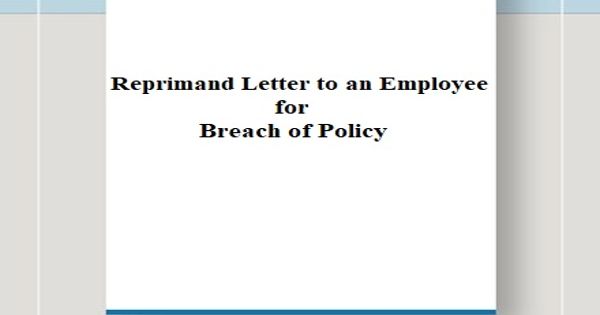Estate planning is a legal arrangement that specifies who will possess and manage a person’s assets when they die or become incompetent. It is the process of anticipating and planning for the administration and disposition of a person’s estate throughout his or her lifetime, as well as in the event the person becomes incompetent or dies. The gift of assets to heirs and the settlement of estate taxes are all part of the preparation. The majority of estate plans are created with the assistance of an estate law practitioner.
Estate planning includes preparing for incapacity as well as decreasing or eliminating probate administration uncertainty and optimizing the value of an estate by lowering taxes and other costs. It is significant because it relieves legal heirs of the burden of paying the taxes associated with transferring assets if the estate had not been prepared. A will is a legal document that specifies how an individual’s property and, if applicable, the custody of young children should be handled after death.
Probate is the legal process that occurs when someone dies without having properly planned their estate. Probate is the legal process by which a court determines what happens to the assets of an estate. Probate necessitates the payment of legal expenses, which diminishes the overall worth of an estate. The final purpose of estate planning is set only by the estate owner’s unique intentions, and it can be as simple or as complicated as the owner’s wants and requirements dictate. Various measures, including as trusts and charity gifts, can be utilized to reduce inheritance taxes.

If the recipient is a minor, a guardian is appointed until the minor reaches the age of eighteen. In the event that an individual becomes disabled, estate planning also considers the administration of their assets and financial responsibilities. More complex estate plans may include provisions for postponing or reducing estate taxes, as well as company succession. Without estate planning, intimate family members may be the last to be separated from their possessions.
Houses, automobiles, stocks, artwork, life insurance, pensions, and debt are some of the assets that might make up an individual’s estate. Individuals create estates for a variety of reasons, including maintaining family wealth, caring for a surviving spouse and children, supporting children’s or grandchildren’s education, or leaving a philanthropic legacy. Good estate planning, on the other hand, is much more than that; it is also a continuous activity, not a one-time occurrence.
Parties Involved in Estate Planning:
- Settlor/Grantor: In estate planning, a settlor is the person who forms the estate and is the owner of the assets. They set up a trust to manage the assets for the beneficiary or legal heirs. A single person or a group of people might be the beneficiary.
- Trustee: The grantor appoints a trustee to look after the assets in the trust. The trust monies are used to compensate them for their time and service. The trusts are managed like businesses, with the trustee having complete control over all revenue-generating choices. Trusts can be established to distribute monies for the benefit of young children or children with developmental disabilities.
- Beneficiaries/Heirs: Beneficiaries are the people who will benefit from the assets. It’s written in the trust deed, which is overseen by the trustee. They have the legal right to change the trustee if they believe he or she is unsuited to administer the assets.
The structure and vehicles utilized to build an estate plan are heavily influenced by income, gift, and estate tax planning. Writing a will is the most basic step in estate planning. Other major estate planning tasks include the following:
- Limiting estate taxes by setting up trust accounts in the names of beneficiaries
- Establishing a guardian for living dependents
- Naming an executor of the estate to oversee the terms of the will
- Creating or updating beneficiaries on plans such as life insurance, IRAs, and 401(k)s
- Setting up funeral arrangements
- Establishing annual gifting to qualified charitable and non-profit organizations to reduce the taxable estate
- Setting up a durable power of attorney (POA) to direct other assets and investments
If the individual had just left a clear estate plan, everyone else could have easily followed their directions and saved all the additional pain and grief. Another reason for estate planning’s importance is the capacity to safeguard both minor and adult beneficiaries who are unable to protect themselves. It is a tax-effective and simple method of transferring assets to the family. Below lists reasons that estate planning is important:
- Plan how the assets are to be segregated: Governments may decide on asset allocation in the absence of an estate trust. It might suggest that a non-family person or a friend gets the assets before the immediate family. As a result, it is critical to plan the distribution of assets so that the assets are distributed to the correct persons, as determined by the grantor of the estate planning.
- Proficient and faster transfer of assets: Many estates take a long time to settle without a strategy, as family members may disagree on how assets should be distributed. As a result, it is critical to arrange ahead of time so that the estate may be efficiently distributed to the beneficiaries.
- Plan how assets are managed during their lifetime: When the grantor is alive but unable to manage the assets due to an accident or sickness, estate planning can assist in determining who will manage and control the assets.
- Reduce fees and taxes: As previously said, the transfer and division of assets might result in a lot of fees and taxes if you don’t have an estate plan. As a result, the grantor can cut fees and taxes using an estate plan, reducing the amount of money taken from the estate to pay the fees and taxes.
Estate planning is a continuous process that should begin as soon as a person has any quantifiable assets. The probate system is often used for distributing property upon death in countries whose legal systems originated from the British common law system, such as the United States. As your life advances and your goals change, your estate plan should adapt to meet your new objectives. Because the conventional probate process takes time and money, modern estate planners increasingly advise clients to use probate avoidance tactics.
Information Sources:
















